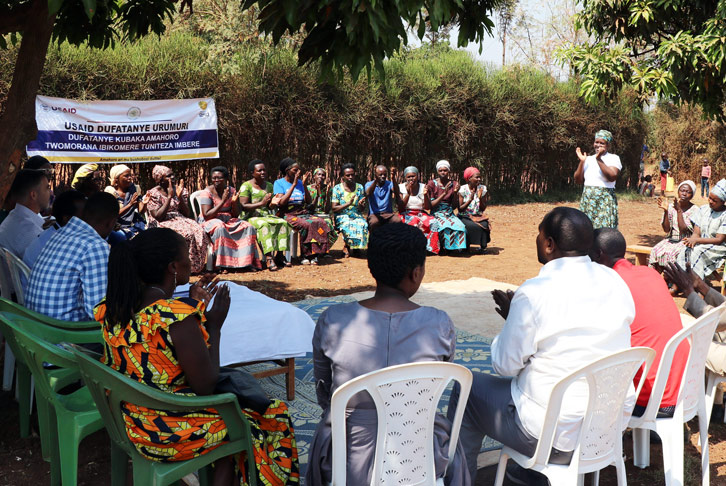In every society, peace is not just the absence of war; it is the presence of unity, justice, and understanding. Throughout history, women have been at the center of building and maintaining peace in their communities. Whether as mothers, leaders, activists, or peace negotiators, women have consistently played powerful roles in healing divided societies. Yet, many of these contributions often go unnoticed. Today, more than ever, it is important to recognize how women contribute to peace, reconciliation, and unity, and why their involvement is essential for long-lasting stability.
Women as Natural Peace Influencers
From the household to national platforms, women often serve as natural mediators. In many African cultures, including Rwanda, women traditionally act as the moral foundation of families. They teach children values such as respect, empathy, and coexistence, values that help prevent future conflicts.
When societies experience violence, women are usually among the first to encourage dialogue. Because they are deeply connected to community life, they understand the challenges, fears, and hopes of different groups. This positions them well to promote peaceful solutions and discourage actions that might escalate disputes.
Women in Community-Level Peacebuilding
At the grassroots level, women are often the glue that holds communities together. They organize community meetings, support vulnerable groups, and lead initiatives that rebuild trust.
For example, after conflicts, women’s associations usually help restore relationships between families and neighbors. They create safe spaces for people to share their experiences, listen to each other, and begin to forgive. In Rwanda, women’s cooperatives played a major role in post-genocide reconciliation, encouraging survivors and perpetrators’ families to work together, support one another, and rebuild communities.
Women also lead initiatives that address the root causes of conflict, such as poverty, hunger, and discrimination. By helping communities gain access to education, healthcare, and economic opportunities, they reduce the stressors that often cause violence. Through savings groups, farming cooperatives, and small businesses, women open doors for financial independence and stability, making communities more resilient.
Women in National Peace Processes
At a national level, women’s involvement in decision-making leads to more inclusive and durable peace agreements. Research shows that peace negotiations that include women are more likely to succeed and last longer, because women tend to prioritize community needs, social healing, and justice.
Women bring different perspectives to the negotiation table. They often highlight issues that male negotiators may overlook, such as gender-based violence, missing persons, trauma healing, and the needs of children. These issues are critical for rebuilding a peaceful society, yet they can easily be ignored without women’s voices.
Across Africa, women have been part of major peace processes. In Liberia, women activists led powerful protests that pushed leaders to end the civil war. Their courage and persistence resulted in a peace agreement in 2003. This example demonstrated that when women are present, peace comes closer to reality.
Women as Champions of Reconciliation
Reconciliation is not a simple or instant process; it requires patience, compassion, and emotional intelligence qualities that women often bring into peacebuilding efforts. Women know how to listen deeply, comfort others, and encourage open dialogue. These skills are essential in societies recovering from conflict.
Women also help restart essential social bonds that violence may have destroyed. They organize cultural events, community service, and support groups that bring people together. Such activities help communities see each other as human again, rather than as enemies.
In Rwanda, women have been at the forefront of programs that support trauma healing. They help survivors share their stories and find strength in solidarity. Their work has been crucial in rebuilding trust and promoting unity.
Women Promoting Unity Through Leadership
When women rise to leadership roles, whether in politics, civil society, or business, they often lead with cooperation rather than confrontation. Female leaders tend to encourage teamwork and dialogue, helping to create environments where peace and stability can grow.
In many countries, laws that support women’s participation in leadership have helped improve peace and good governance. When women are included in parliament or national committees, they push for policies that protect rights, reduce inequalities, and strengthen national harmony.
Challenges Women Still Face
- Despite their powerful impact, women still face several obstacles in peacebuilding:
- Cultural barriers that limit their involvement in decision-making.
- Gender-based violence that silences or intimidates them.
- Limited access to education and resources, which affects their ability to participate fully.
- Under-representation in national peace committees and political institutions.
These challenges must be addressed to ensure that women can contribute even more effectively to peace and unity.
Why Including Women Matters
A peaceful society cannot be built by excluding half of its population. When women participate in peacebuilding processes:
- Peace agreements last longer.
- Communities heal faster.
- Children grow up in safer environments.
- Economies recover more quickly.
- National unity becomes stronger.
Women bring balance, compassion, and wisdom to peace efforts. Their experiences make them powerful agents of positive change.
Conclusion
Women play a transformative role in peacebuilding and conflict resolution. From raising peaceful families to leading national reconciliation efforts, their contributions shape the stability and future of entire nations. Societies that empower women benefit from stronger institutions, healthier communities, and deeper unity.
To achieve sustainable peace, we must continue supporting women’s voices, protecting their rights, and opening more doors for them in leadership and decision-making. When women rise, peace rises with them.
Brenna AKARABO
RADIOTV10










